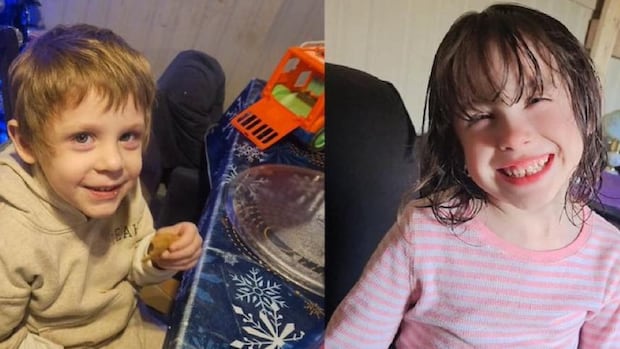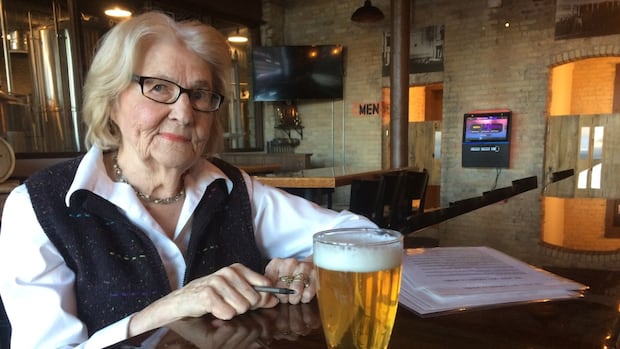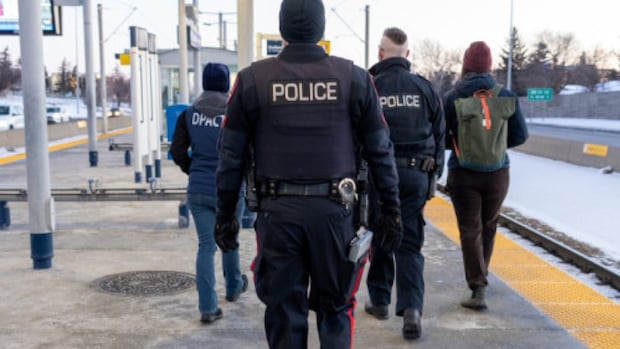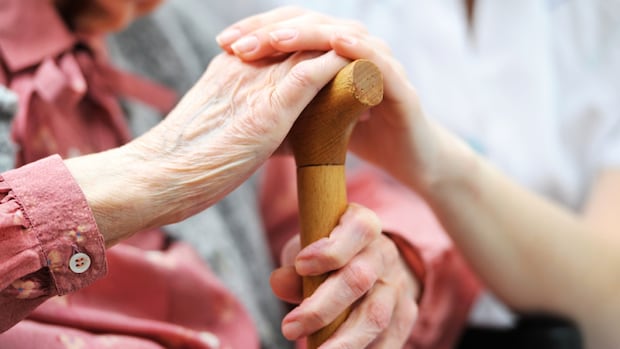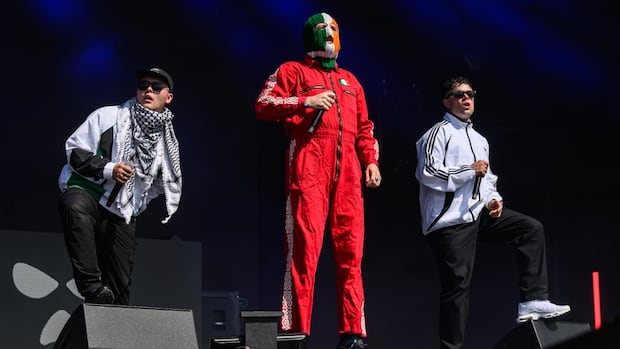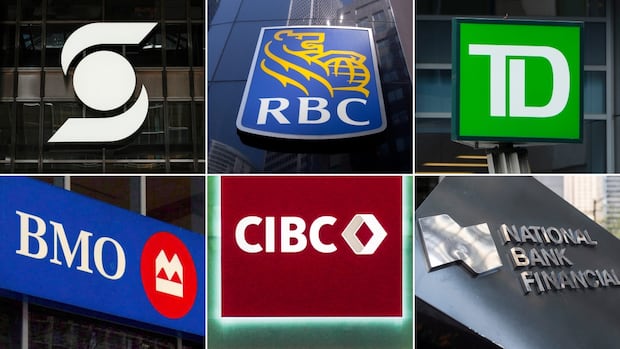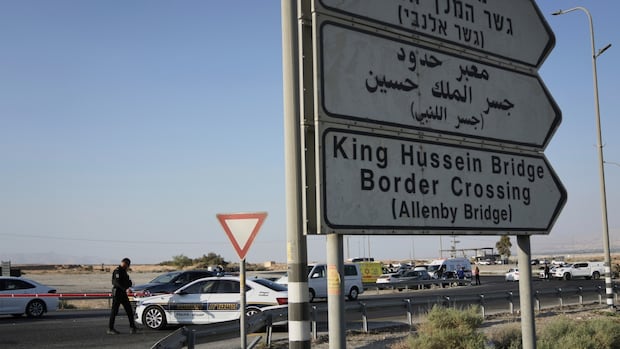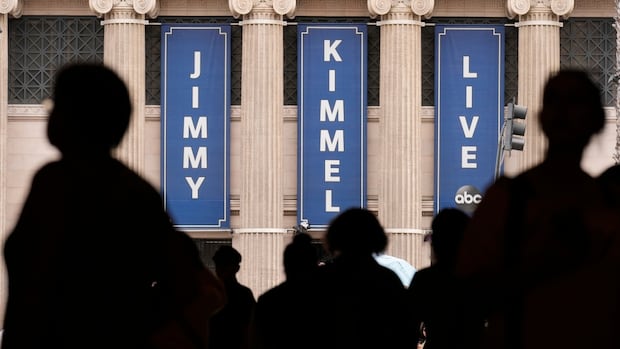Amid the debates about free speech and censorship, there's another issue to consider in the wake of Jimmy Kimmel being pulled off the air for his comments about the murder of far-right activist Charlie Kirk — does it matter if a joke is wrong?
Not morally wrong or "offensive," as some critics have argued, but, potentially, incorrect.
ABC, the broadcaster owned by Walt Disney, said on Wednesday it was yanking Jimmy Kimmel Live! indefinitely after the nation's top communications regulator threatened to investigate Kimmel's commentary about Kirk, a prominent Trump ally.
Speaking to CNBC on Thursday, Federal Communications Commission (FCC) chairman Brendan Carr said the issue is that Kimmel appeared to "mislead" the public.
Which raises questions, like what exactly Kimmel said, whether it was incorrect and how much that matters since he's a comedian and not a journalist.
WATCH | Trump is asked about Jimmy Kimmel: U.S. President Donald Trump, when asked during a news conference with U.K. Prime Minister Keir Starmer about a move by ABC to remove Jimmy Kimmel from the air, said the talk show host said 'a horrible thing' about Charlie Kirk — but attributed the decision to Kimmel's 'bad ratings' and 'lack of talent.'"The Venn diagram of comedy and truth gets thrown around a lot," Toronto-based comedian Clare Blackwood, a writer for the satirical publication The Beaverton, told CBC News.
"I think political comedians and journalists have similar responsibilities — to talk about what's going on. But those responsibilities are approached from very different but orbiting perspectives."
What exactly did Kimmel say?The comments came during Kimmel's opening monologue Monday.
"We hit some new lows over the weekend, with the MAGA gang desperately trying to characterize this kid who murdered Charlie Kirk as anything other than one of them, and with everything they can, to score political points from it," Kimmel said.
WATCH | What Jimmy Kimmel said about Charlie Kirk: ABC said on Wednesday it will indefinitely stop airing Jimmy Kimmel Live! after remarks the late-night host made in the wake of Charlie Kirk's killing."In between the finger-pointing, there was, uh, grieving. On Friday, the White House flew the flags at half-staff, which got some criticism, but on a human level you can see how hard the president is taking this," Kimmel said, before cutting to a clip where Trump responded to reporters asking how he was doing by pointing to construction going on at the White House.
"This is how a four-year-old mourns a goldfish," he said.
Which part are critics taking issue with?The first part, where Kimmel said MAGA is "desperately trying to characterize this kid who murdered Charlie Kirk as anything other than one of them."
"The issue that arose here, where lots and lots of people were upset, was not a joke," the FCC's Carr told CNBC.
"It was appearing to directly mislead the American public about a significant fact that probably one of the most significant political events we've had in a long time, for the most significant political assassination we've seen in a long time."
Kirk, a close conservative ally of Trump, was killed by a sniper's bullet on Sept. 10 at a university campus in Utah. On Sept. 12, authorities announced they had the accused killer, 22-year-old Tyler Robinson, in custody.
There's been a lot of speculation about a potential motive, with politicians and partisans attempting to blame the other side. Trump blamed "the radical left," while others theorized some of the messages found on the bullet casings could link the suspect to the far right.
Was Kimmel's statement misleading?At the time Kimmel said it, on Monday, investigators had not yet provided much information about the suspect's possible motive. Nothing had explicitly linked Robinson with either side of the political spectrum.
"This was at best an unconfirmed rumour at the time, and as more evidence has emerged, seems flatly incorrect. Kimmel should have chosen his words more carefully," noted an article in The Atlantic Thursday.
It was the next day, Tuesday, that prosecutors outlined evidence against Robinson, including statements from his parents that described him as moving left politically and "becoming more pro-gay and trans-rights oriented."
 Jimmy Kimmel attends an event on May 2 in Beverly Hills, Calif. (Tommaso Boddi/Getty Images)
Jimmy Kimmel attends an event on May 2 in Beverly Hills, Calif. (Tommaso Boddi/Getty Images)Any statement made on such a complicated issue "deserves a lot of context," said Saranaz Barforoush, an assistant professor of teaching at the University of British Columbia's school of journalism. In this case, maybe Kimmel could have mentioned that we don't yet know anything concrete about the suspect, or any evidence he had ties to MAGA, she explained.
"And well, it wasn't there. So people took it the way they took it," Barforoush told CBC News.
But Blackwood, the writer for The Beaverton, notes Kimmel didn't say the suspect was absolutely a member of MAGA, but that MAGA was trying to prove he wasn't one of them, as a setup for a joke about Trump's response.
"That's not a lie," she said. "Republicans did try to shift any possible association with the shooter as far away from them as possible by blaming the left."
The Poynter Institute, a non-profit media institute, made the same argument, writing on its website Thursday that the point of Kimmel's comment didn't seem to be that he was blaming the MAGA community for Kirk's shooting, "but that the MAGA community was blaming the left and trying to score political points from it."
CBC News has previously reported on how the promises to crack down on what Trump calls "radical left" groups began within hours of the Kirk's shooting, and was amplified by his administration on a near-daily basis in the following week.
Should comedians be held to the same standard as journalists?Whether he was misleading or not, as The Atlantic points out, Kimmel is "a comedian, not a journalist."
But does that mean late-night show comedians aren't held to the same standards as journalists, even though they broadcast their political takes to millions of viewers?
It's similar, but different, explained Blackwood. Journalists are expected to be non-partisan and present both sides of the issue, she said, while comedians and satirists are expected to have a funny point of view about one specific side of the issue.
"And frankly if they don't, it makes for bad, weak comedy," she said.
WATCH | 'We're entering a dangerous place,' says entertainment reporter: Former entertainment reporter Ali Carbone says she is worried that the U.S. is entering a 'dangerous place of a controlled media' after Jimmy Kimmel Live! was pulled from the air. ABC said on Wednesday it will indefinitely stop airing the show after remarks the late-night host made about the reaction to Charlie Kirk's assassination came under harsh criticism from the head of the U.S. Federal Communications Commission."Comedy should be informed ... the more information you have, the more you have to work with. But I think there's a line between outright lying and bending the truth for the sake of a joke."
And a lot of those late-night comedy segments are fact-checked, Barforoush noted. Over the years, numerous comedians and producers of late-night comedy shows have discussed the rigorous fact-checking and research required as the shows have become more political.
"You can't build jokes on sand," John Oliver, host of Last Week Tonight, told NPR back in 2016. "You can't be wrong about something — otherwise that joke just disintegrates."
Barforoush says she's concerned about the implications of pulling Kimmel off the air, given it's a source of information for so many people and offers an alternative way to engage with current affairs.
And if we're going to discuss fact-checking, we have to discuss both sides of it, she added.
"If we're going to say that anything that goes on late-night has to be fact-checked, then anything that goes on far right radio has to fact-checked, too."



